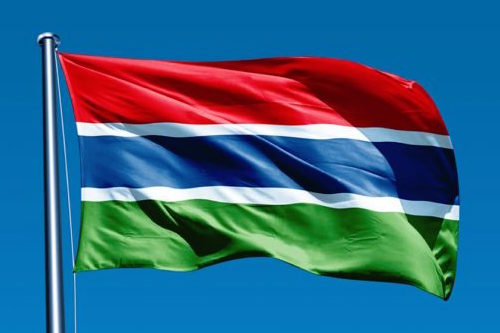ECOWAS adopts statute of “hybrid” court to prosecute crimes under ex-president Yahya Jammeh
The agreement on 15 December 2024 to establish a special court to try the worst crimes committed under the rule of the former president of Gambia, Yahya Jammeh, if swiftly implemented, could mark a turning point in the campaign to bring Jammeh and his accomplices to justice, the International Commission of Jurists (ICJ) said today.
The Authority of Heads of State and Government of the Economic Community of West African States (ECOWAS), meeting in Abuja, Nigeria, approved the Statute of the “Special Tribunal for The Gambia,” a hybrid court with Gambian and international personnel, and a mandate to prosecute crimes against humanity, torture and other serious crimes committed during the Jammeh regime. Defendants potentially include Jammeh himself, named by a Gambian truth commission in murder, torture and rape during his 1994-2017 rule. Jammeh was forced to step down after losing elections in December 2016 and now lives in Equatorial Guinea.
“After years of delay, this agreement could finally give Yahya Jammeh’s victims their day in court,” said Reed Brody of the International Commission of Jurists, who has worked with the victims and the Gambian authorities on plans for the court. “The tribunal should now be funded and established quickly, before more survivors die.”
Under the approved Statute, the Special Tribunal will have its seat in The Gambia but could hold trials in another country if needed. Trials would be held before a three-judge panel, one of whom would be Gambian. A Special Prosecutor, whose appointment will be made next year in accordance with a law already passed in The Gambia, will bring the most serious Jammeh-era cases to the Special Tribunal and take other cases to a newly-created division of the High Court of The Gambia. The ICJ called on ECOWAS and the Gambian government to make sure that the rules and operative procedures of the Tribunal are such as to guarantee fair trials in compliance with international standards.
Yahya Jammeh was accused by a Gambian Truth, Reconciliation and Reparations Commission (TRRC) in the killing and torture of political opponents, the rape and sexual assault of numerous women, “witch hunts” in which hundreds of people were arbitrarily detained, and running a sham HIV-treatment program. In 2021, the TRRC called for the prosecution of Jammeh and 68 other former officials. The new ECOWAS-backed court could harness support from ECOWAS member states such as Ghana, Nigeria and Senegal, citizens of which were among the 59 West African migrants massacred in 2005 by Jammeh’s “Junglers” hit squad, potentially making it difficult for Equatorial Guinea’s president Teodoro Obiang to “protect” Jammeh from prosecution, as he once said he would.
“After the powerful public testimonies at the truth commission, which deeply impacted Gambians, there is strong expectation in Gambia and internationally that there will be justice,” said Brody. “It will be hard for Equatorial Guinea to refuse to turn over Yahya Jammeh to a court that represents the entire West African region.”
Under the new court Statute, trials would be filmed and recorded for broadcasting. Groups of victims would be entitled to representation by counsel before the tribunal.
On 4 December, the Alliance of Victim-Led Organisations in The Gambia and over 300 individuals called on ECOWAS leaders to adopt the court’s statute.
Three alleged Jammeh accomplices have already faced prosecution abroad. Gambia’s former interior minister, Ousman Sonko, was convicted in Switzerland in May 2024 of crimes against humanity. A former driver for the Junglers, Bai Lowe, was convicted in Germany in November 2023, and another alleged Jungler, Michael Sang Correa, is scheduled to go on trial in the United States in April 2025.
For more information:
In Barcelona, for the International Commission of Jurists, Reed Brody +1 917-388-6745 or reedbrody@gmail.com; X: @reedbrody, Bluesky: reedbrody.bsky.social





